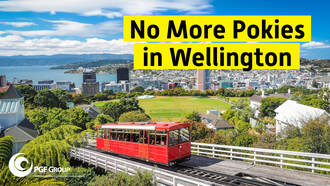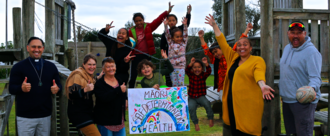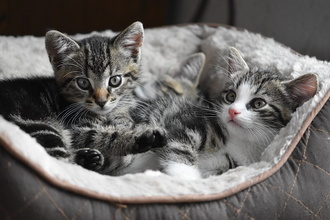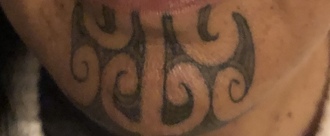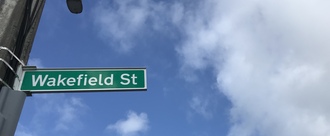-
Support families in need. Extend the Winter Energy PaymentAs New Zealanders, we believe in justice and compassion. We want everyone to have the opportunity to thrive. But, right now, hundreds of thousands of people in our country are living in poverty. Despite our differences, we share a responsibility to make sure everyone has a decent standard of living and the same chances in life. Poverty in New Zealand affects people of all ages and situations – children and their parents, young adults, people in and out of work and people with disabilities. The stress that comes with poverty can erode people’s mental and physical health. Showing compassion as a society means making sure no-one has to endure the harms of poverty. On October 1, 2020, the Winter Energy Payment that is provided to people on government income support, to assist with heating a home, is due to expire. This will cut the already low incomes for people locked in poverty by $63 a week for couples and $41 a week for an individual. But as research has shown, $40 - $60 less per week means not being able to go to the dentist or doctor, not being able to afford emergency bills and not being able to pay for kids to participate in extracurricular activities like sports, art or volunteering. At a time where food banks are reporting record demand and the number of people needing government income support had its biggest jump in 24 years in April, the government needs to show some compassion. By permanently extending the Winter Energy Payment, the government can help make it possible for everyone to do well.861 of 1,000 SignaturesCreated by Nick Stoneman
-
Calling on Parliament for a Green Response to COVID-19Our Recommendations We are calling on you, our leaders and representatives, to put the climate crisis at the forefront of this election. We urge you to make strong, effective policies to fight climate change. a) Honour Te Tiriti o Waitangi by actively seeking and listening to the Māori and Pasifika leadership when making green policies. This inevitably requires constitutional transformation and recognition of tino rangatiratanga. b) Re-build from COVID-19 with environmental bottom lines and climate change at the forefront c) A just transition into a forward-looking low carbon economy. d) Listen to and work with climate scientists who have been warning us for decades. e) Take action now We ask what policies you and your party plan to enact which address these recommendations? Please let us know at [email protected]67 of 100 SignaturesCreated by Climate Clinic
-
Restore all the Queen Elizabeth Park wetlandsThe protection of the Queen Elizabeth Park area is so important to the Wellington region for environmental, recreational, social and climate change reasons. Now we have the opportunity to increase the area of the protected environment and restore the wetlands. The Wellington region has less than 3 percent of its original wetlands left. Drained and farmed peat emits huge amounts of carbon dioxide whereas rewetted peat will become a carbon sink so this action is consistent with GWRC declaring a climate change emergency. It also reduces the need for chemical weed control as woody weeds such as gorse and blackberry cannot survive in wet earth. Natural spaces in urban environments offer huge benefits to community well-being not to mention native flora and fauna. By expanding the protected area we could set a precedent for the rest of the country to show what is possible. It could also become a significant education tool. We've had some wins to protect what still exists, but we can do more! Add your name today and be part of this joint submission to show the public support to protect this special area. See our previous petition at https://our.actionstation.org.nz/petitions/save-the-raumati-wetlands-in-queen-elizabeth-park-and-create-kapiti-s-biggest-carbon-sink Greater Wellington Parks Network Plan: http://www.gw.govt.nz/parks-network-plan746 of 800 SignaturesCreated by Friends of Queen Elizabeth Park

-
Leave no-one behind: Campaign to address digital exclusionHave you or someone you know ever tried to fill out a government form online? How about doing that on your phone? And uploading documents to it? What if your internet connection was limited? Or English wasn’t your first language? Or you were vision impaired? Or didn't have a credit card? What if you needed help to understand, and what you really wanted was someone to talk to? Consider the frustration this causes you and what it looks like when you’re made further vulnerable as you stare into the digital divide. The digital-only or digital-first approach being embraced by government agencies is excluding some of Aotearoa’s most vulnerable people and communities. This is unacceptable. We want to see people’s needs put at the centre of public services and are asking our representatives in Parliament, to pledge to ensuring this is the case. Interacting with government services is often about accessing rights and entitlements and it’s important that there aren’t any barriers in the way. Digital services are not the right response for all people or in all circumstances. There needs to be genuine choice for people about how they can interact - whether online, face-to-face, through others or by phone. It is critical that as a country we don’t allow the digital transformation of public services to further entrench disadvantage and vulnerability. We have written to politicians asking them to commit to addressing digital exclusion so that no-one is left behind or left out because they can't or don't wish to engage online. As part of this campaign, we are also seeking funding to cover the transfer of costs that has resulted from government agencies closing up shop in communities and sending people to get help from CABs, including to get paper copies of forms. Join us in this call to address digital exclusion so that we leave no-one behind! This campaign builds on the findings and recommendations of our report, ‘Face to Face with digital exclusion’. You can read the full report here: https://www.cab.org.nz/what-we-do/social-justice/digital-exclusion/8,047 of 9,000 SignaturesCreated by Citizens Advice Bureau New Zealand Ngā Pou Whakawhirinaki o Aotearoa

-
No more pokies in Wellington!Wellington City Council is seeking feedback on its proposed gambling venues policy for electronic gaming machines, more commonly known as ‘pokies’. The Council has powers to determine which TABs, pubs and clubs can host pokie machines. The current policy limits the number of machines in certain areas, but we would like the policy to include a ‘sinking lid’. That means no new pokies venues would be able to open in the Wellington area. We think a sinking lid is the best policy available to reduce the number of pokie machines and reduce gambling harm. Currently Wellington City has 633 pokie machines across 40 venues. In 2019, people in Wellington lost over a staggering $40 million on these machines. Some people support pokies because the gambling losses are used to fund community groups. But only 40% of the losses are returned to the community and not always into the community it comes from. Pokies are highly addictive and are the most harmful form of gambling. It is estimated that 30% of the money lost on pokies comes from people experiencing harm. Pokies outside casinos make up almost 50% of the people who seek help about their gambling. Pokie machines in Wellington are clustered in the most deprived neighbourhoods in the city where people can least afford to lose significant amounts of money. Council’s consultation process is public and your comments will be available for public inspection. Submissions are open until 1 October 2020. Your submission won’t be returned to you, so if you require a copy, please make one before submitting. Your name, address, phone number, and email address are required for this official submission and will be for Council use only. If you require a special private hearing where your identity will be protected and you have experienced gambling harm, please contact PGF Group on 0800 664 262.325 of 400 SignaturesCreated by Paula Snowden
-
Save our school librariesThe School Library Association of New Zealand Aotearoa (SLANZA) is launching a nationwide campaign to highlight the plight of our school libraries. SLANZA is deeply concerned about the demise of school libraries in Aotearoa. It is estimated that of the 2500 schools in New Zealand only 900 have a library. Stuart McNaughtons recent report entitled “The literacy landscape in Aotearoa New Zealand” states that 52% of 15 year olds only read if they have to and 28% think reading is a waste of time. Yet his report did not mention School Libraries once and we know from international research that schools with a well-resourced library and specialist library staff positively impacts learning outcomes across all year levels. Our libraries are being closed, relocated to hallway cupboards, are having budgets slashed. We have low decile high schools trying to raise literacy rates but can only fund their library $1000.00 a year to operate and are buying books from Op Shops to stock the shelves. These stories are not acceptable in New Zealand. SLANZA believes that all school students in New Zealand, at every level of their education, should have access to effective school library services that will support their reading and learning. We plan to promote the value and necessity of every student having access to a school library, supported by a specialist librarian with a budget and hours to provide a high-functioning learning environment within all school communities in Aotearoa New Zealand. The Ministry of Education will mandate every student to have access to a school library staffed by specialist school librarians and is Ministry of Education funded. We know school libraries make a difference for our students for their well being, hauora, their learning outcomes, their ability to critically analyse and their growth in empathy. School libraries transform and we in this campaign will be informing our nation of the lack of funding, space and staffing within our school libraries. We want the government to listen and to act, so our school libraries can be resourced fully to continue to transform the lives of all of our students. Our campaign will be launched on September 1st and is called “School Libraries Transform.” Please refer to our website for further information pertaining to our campaign. http://www.schoollibrariestransform.org.nz/6,949 of 7,000 SignaturesCreated by Sasha Eastwood-Bennitt
-
Māori self-determination for HealthPlease refer to our video documenting delivery of this petition here: https://www.youtube.com/watch?v=_662YzLuZMA&feature=emb_logo At this time of the covid virus we can be especially thankful that our publicly funded health system in Aotearoa New Zealand is among the best in the world. However the health system doesn't work the same for everyone. Māori whānau and communities are treated unfairly in the current model and experience severe and persistent health inequities. A fair society means everyone participates in enhancing our social, economic and educational activities, which builds collective confidence and safety. We all benefit in a fair society that is more prosperous and harmonious. https://youtu.be/sFlM5B008Ts More Videos: https://www.youtube.com/channel/UC2v0dLjHVJL1UqCe7T-n3WQ Māori kids and adults visit a health professional the same as or more than non-Māori. Yet the outcomes across the population are different. For example, Māori women are dying at two times the rate as non-Māori from breast cancer, four times in cervical cancer and five times more in lung cancer. The recommendation of 10 of 12 health experts who were tasked with a two year investigation of unfairness in our health system and how to address this, concluded a Māori Health Authority with commissioning rights was the best approach. This means an Authority that will have the autonomy to control, make decisions, and determine how to spend health dollars most appropriately for Māori. In order to provide the same high outcome for everyone our health system needs to be informed by Māori needs and Māori decision making. Māori must be able to enact rangatiratanga (self determination) to best meet the needs of their own communities. Such an approach will result in diverse options for everyone. For example, a Mātauranga Māori commissioning frame recognises the inseparability of health, education, environment, income, and civic responsibilities. This world-leading approach honours Te Tiriti o Waitangi which lays out terms of settlement. Te Tiriti is how we achieve a society where improved health is protected for every person, whānau, and social group regardless of social advantage and disadvantage. Though the government has accepted the creation of a Māori Health Authority, they rejected commissioning rights for the Authority. Without commissioning rights, the Māori Health Authority is subordinate to the Crown's representative, the Ministry of Health. Add your name today to call on our government to give Māori commissioning to the Māori Health Authority and ensure equal health outcomes for everyone in Aotearoa. **** References The New Zealand Health and Disability System Review https://systemreview.health.govt.nz/ "We have now some quite good evidence that racism at a range of levels does determine access, experience and outcomes in the healthcare system." Dr Ashley Blomfield, to the Waitangi Tribunal in 2018 Racist health system no cure for sick Māori, July 2019 https://www.stuff.co.nz/national/health/113917099/racist-health-system-no-cure-for-sick-maori 'We have totally failed': Rheumatic fever: The Third World disease entrenched in New Zealand, Aug 2020 https://www.stuff.co.nz/national/health/122260447/we-have-totally-failed-rheumatic-fever-the-third-world-disease-entrenched-in-new-zealand National Urban Māori Authority calls for Māori self-determination in health https://www.stuff.co.nz/auckland/300036653/national-urban-mori-authority-calls-for-mori-selfdetermination-in-health Māori should have a stand-alone health system https://www.facebook.com/TeAoMaoriNews/videos/3592536994197158 Public Health Association calls for the Minister of Health to intervene and support the Māori Health Authority alternative commissioning framework https://www.nzdoctor.co.nz/article/undoctored/public-health-association-calls-minister-health-intervene-and-support-maori1,688 of 2,000 SignaturesCreated by Emily Gill
-
Keeping Cats Safe in AucklandHave you ever come across a cat or kitten who has died crossing the road? If you haven't, then you are fortunate and, you don't live near where I live. I have lost count of the number of cats that have lost their lives crossing roads; mostly at night and not always on busy streets. The worst time of year has been around Guy Fawkes night. Then the number of cats that die is significantly higher than the rest of the year. I decided to do some research on the subject, including how other countries handle this issue problem. Here is what I discovered. In Brisbane, Australia, in 2017, the Brisbane Council enacted the Animal Local Laws Act that requires people who have companion cats to microchip them, keep the microchip details up to date and the cat must have a collar containing contact information. As well you are required to keep your cat on your property. They do not have to be indoors all the time; they can be kept in an enclosure which could be connected to your house by a cat door or some other means. You can keep up to three companion cats without a permit; however, if you want more than a license is needed. I also looked at what they do in England to keep cats safe. They also recommend keeping cats in at night because accidents are more severe at night/in dark hours, including morning/afternoons in winter months. They also noted that it is not just road that are hazards for cats at night but that they can become injured through contact with other animals, including wild animals. There have also been problems with people in London going out at night killing cats. They have also recommended that a cat owner put a reflective or fluorescent quick-release collar on the cat as it may help them be seen. Research by Pet Insurance companies in England found that approximately 78% of all road traffic accidents involving cats happen at night. Specialists in both countries agree that you should never lock a cat out at night. Our family has always kept our cats in at night. While they were young adults, they may have tried to escape on occasions and be a little restless; however, they soon adjust. Cats are hunters; however, there is no reason why they should be allowed to roam around at night. Our cats have adopted the same sleep pattern as us of sleeping at night time. We had an old aviary that we attached to our house via a bedroom window, and that worked well. If your yard is completely fenced its possible to use a fence attachment such as the Oscillot cat fence which is a paddle system that attaches to the top of a wall, making it impossible for a cat to climb over. If you Google search you can find a variety of ideas and designs. In Auckland, there is no limit on the number of cats you can keep on your property. There is no legislation as such, only a responsible cat owner guidelines. There are bylaws protecting dogs and preventing them from becoming a public nuisance, but there are none concerning cats. Why not? In Auckland, anyone who witnesses pain or suffering of a cat needs to report it to the police and or the SPCA; otherwise, they breach the Animal Welfare Act. All well and good, however, this gives no protection to cats nor stops them from becoming a hazard. A recent Wellington study found that on average cats crossed four roads per day. While the Aminal Welfare Act contains a level of recognition that keeping cats safe means keeping the contained inside the home or on the property, there is no legal obligation to do so. The NZ Government has a Code of Welfare: Companion Cat which came into effect from October 2018. Once again it only contains recommendations such as keeping your cat indoors between dusk and dawn, keeping them indoors when fireworks are in use. The document states that some cats prefer to be out at night and will find their place under houses, in garden sheds, in dense undergrowth, etc. How is this responsible cat ownership? Are they genuinely saying that cats know that is best for them? The document has a lot of useful information on feeding, health and breeding but about from recommending that they are kept inside at night, there is nothing that protects a cat. Recommendations are one thing, but legal requirements are another. It's time to make a change, to act decisively to ensure the safety of all cats in Auckland, ensuring that they also do not become a community problem. Please sign and share the petition.66 of 100 SignaturesCreated by Amber Ranganui
-
Recognise the rights of mokoMoko, a divine treasure etched into the skin to enhance the cultural identity of Māori in New Zealand. Moko, beautiful markings reflecting the whakapapa (geneology), history and mana of the wearer. Moko, an important traditional practice used by Maori since time immemorial. Please support this petition to include 'moko','moko kauae','mataora', 'ta moko' as prohibited grounds for discrimination. History tells us our tipuna enjoyed freedom of movement as moko wearers, a legacy we should able be able to carry on as well.8,573 of 9,000 SignaturesCreated by Rangimiria Ihakara
-
Halve food waste by 2030Did you know that a third of the food we produce is lost or wasted from farm to fork? Tackling food waste could lead to a triple win for New Zealand: 1. Environmentally: Reducing carbon emissions and protecting the environment. 2. Economically: Boosting the economy and saving Kiwis money. 3. Socially: Improving livelihoods and increasing food security. New Zealand does not currently have a national food waste reduction target. We are lagging behind countries representing 50% of the world’s population, including Australia, the United States and the United Kingdom. This needs to change. We need to take steps to align ourselves with the global target, Sustainable Development Goal Target 12.3 (SDG 12.3), to halve food waste by 2030. Reducing food waste has recently been ranked as the third best global solution to addressing climate change (Project Drawdown). New Zealand has an opportunity to lead the world in climate action, sustainable food production, and preventing food from being wasted. We are calling on any newly elected Government to set a food waste reduction target in their 100 day plan (or coalition agreements) and align with SDG 12.3. This is our chance to set the right direction on reducing food waste over the next 10 years. Once government sets the direction, we believe businesses will come on board. We’re starting to see this globally, with two thirds of the world’s largest food businesses having adopted SDG 12.3. On top of this, many food businesses are measuring their food waste and taking action to reduce it. We encourage this target-measure-act approach for New Zealand businesses too. Setting national food waste targets can create widespread change, across government, businesses and the community. The time is ripe to start tackling food waste and ensuring that we have sustainable and secure food systems. WHO SUPPORTS THIS PETITION? This petition is supported by New Zealand Food Waste Champions 12.3, a coalition from New Zealand’s food supply chain to accelerate progress towards achieving Sustainable Development Goal Target 12.3 (SDG 12.3). Our twelve Champions work in retail, food businesses, research institutions and food waste reduction not-for-profits. Champions' organisations that back the petition include: KiwiHarvest, EcoStock, Countdown, NZ Food Network, Kaibosh, Leftfield Innovation Ltd, EcoGas, Bioresource Processing Alliance, Everybody Eats, Sustainable Business Network and our sponsor, Countdown. This petition is also supported by our Citizens of 12.3 – everyday Kiwis who want climate action on food waste. The Sustainable Development Goal Target 12.3 in full is: “By 2030, halving per capita global food waste at the retail and consumer levels and reducing food losses along production and supply chains, including post-harvest losses”. Other supporters include: FoodTruths, FoodPrint, United Nations Association NZ, Dietitians NZ, United Fresh NZ INcorporated, Potatoes NZ, The Carbon Cycle Company, Taco Addicts, CompostMe and Wilding & Co, Toha, Beef + Lamb, Powered by Plants NZ Ltd, Sustainability Trust, The Rubbish Trip, Skinny Fizz, WELLfed, Generation Zero, Zero Waste Network, WWF and Greenpeace.1,234 of 2,000 SignaturesCreated by NZ Food Waste Champions

-
Youth Justice Demerit Points Bill Fails Young People: Ask the Select Committee to reject it!To the Social Services and Community Committee We ask that you reject the Oranga Tamariki (Youth Justice Demerit Points) Amendment Bill. This Bill, though well intentioned, fails to understand and respond to the complex and layered challenges facing our rangatahi. At the heart of this bill lies a lack of understanding of the drivers behind youth offending, and the sort of interventions needed to support rangatahi to thrive. According to the Youth Offenders summary report in 2019, of those referred to a FGC, 94% of kids 11-13, and 81% of young people aged 14-17 had been the subject of a report of concern to Oranga Tamariki relating to their care and protection. This data highlighted "that young people who offend often have complex problems, which can be among the underlying causes of their offending." If you speak with Youth Development Workers, or Social Workers supporting these rangatahi and whanau, they will testify to the reality that a large proportion of rangatahi who end up reoffending are often victims of abuse, with a history of poverty, mental illness, housing instability, intellectual disability, and severe trauma. They are also predominantly Maori, facing regular, and constant discrimination. The Youth Justice Demerit Points bill fails to provide an answer to these very real and significant issues that lie at the root of youth offending. Another failure of the Bill is its assumption that our inability to support rangatahi early enough is a failure of identification. However, if you once again were to speak to Youth Development Workers, Social Workers, and other community workers who are serving and supporting our whānau and rangatahi, they will tell you that identifying rangatahi at risk of reoffending is not the problem. Our communities know who these young people are. The issue lies in the lack of resources and supports available for young people within our community. The idea of using demerit points to characterise young people, is also out of step with the Government's own Youth Development Strategy Aotearoa (YDSA). The YDSA commits the Government to thinking about, and walking alongside young people utilizing a Strength Based approach. The YDSA outlines that any additional support designed for young people "needs to be consistent with the youth development approach - that is, it needs to avoid defining the young person as 'the problem'." The Youth Justice Demerit Points Bill is out of step with the YDSA. It fails to approach our young people in a strength based manner, and it contributes to further stigmatizing and marginalizing young people. We are also concerned about the negative impact labeling our young people with Demerit Points will have on their overall mental and emotional well-being. Instead of passing a bill that will have very little direct impact on reducing the risk of a young person re-offending, we ask that Parliament turns its focus to: ★ Reviewing the Family Group Conferences (FGC) system: Audit the FGC system and provide the necessary resource and support needed to ensure that it is functioning in a manner consistent with the principals of Restorative Justice and Youth Development. ★ Focus on Early Intervention: Provide local communities with resourced and dedicated support so that they can meet the needs of the young people in their communities who are struggling and at-risk. ★ Develop a Strategy to address the Youth Homelessness crisis: We know that when young people experience homelessness they are more likely to offend as a matter of survival. A Youth Specific Homelessness Strategy would address the factors that lie at the root of youth offending. Child poverty, mental illness, disability, unstable and inadequate housing, trauma, discrimination and racism are all factors that would be addressed. Young people living in stable housing, with their mental, emotional, spiritual and physical well-being taken care of, are less likely to become involved in the Youth Justice System. ★ Provide each young person entering the Justice System with a trained Youth Development Worker: A service designed in consultation with the Youth Development Sector, with a specific focus on supporting rangatahi who enter the Youth Justice system, would be one way to provide early intervention to rangatahi as soon as they enter the system. If each rangatahi had a dedicated Youth Development Worker, their needs could be assessed immediately, and they would than be able to be connected to the right supports before they become entrapped within the system. The Oranga Tamariki (Youth Justice Demerit Points) Amendment Bill fails to understand or acknowledge the driving factors behind youth offending, and thus it fails to adequately respond. For this reason, the Bill should fail. You can read more about our concerns with the Bill here: https://whenlambsaresilent.wordpress.com/2020/07/30/will-demerit-points-stop-youth-offending-a-j-hendry/ You can find the bill here: http://www.legislation.govt.nz/bill/member/2020/0229/latest/whole.html#LMS323852411 of 500 SignaturesCreated by Aaron Hendry
-
Huarahi Māori o Te AwakairangiHuarahi Māori o Te Awakairangi is a social action campaign started by six Year 13 students at Wainuiomata High School. We strongly believe that colonial street names are controversial and not reflective of our communities. We have conducted some research and found that less than 22% of the street names in Te Awakairangi are Māori. With the support of our community, we want to have meaningful street names which reflect our culture. We must keep our culture alive and not celebrate those who have stripped that from Māori. For example, the two Wakefield brothers ended up in prison for three years for abducting a 15 year old girl. Here in Aotearoa William Wakefield manipulated the lands out of Māori hands and condoned and promoted colonisation of our country. That name does not deserve to be represented on our whenua. "...These are the names we say everyday with ease while ancient names, names with stories, and genealogies tied to this place get erased, replaced, and sometimes butchered beyond recognition..." -Dr Emalani Case (from 'Lost in Wellington') We aim to bring change through our values of manaakitanga and peace. Please sign our petition and help us make this change.588 of 600 SignaturesCreated by Nicole Hawkins


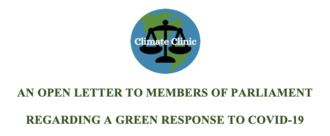

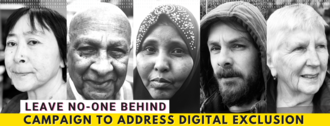.png)
